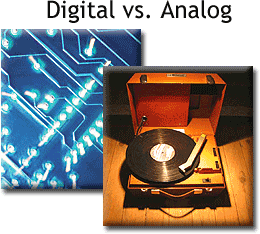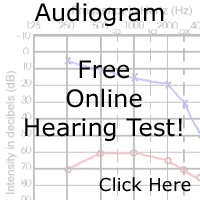 |
 |
 |
 |
 |
 |
 Digital Hearing Instruments vs. Analog (Conventional) Hearing Instruments
Digital Hearing Instruments vs. Analog (Conventional) Hearing InstrumentsAnalog, non-programmable (also called "conventional" Hearing Aids): This means that the electronics in the Hearing Aids are analog, consisting of electronic parts to amplify and control the sounds coming through the hearing aid. They are generally not as flexible as digitally-programmable or fully Digital Hearing Aids in adjusting to the particular hearing loss and listening needs of each patient. However, they are the least expensive category of hearing aid. Digitally-programmable Hearing Instruments: These Hearing Aids are computer programmed by the audiologist for each individual and often contain options that are not available in conventional Hearing Instruments. Some programmable offer the user an option to select among a variety of listening programs. These Hearing Aids typically offer more automatic adjustment for loud or soft sounds without having to use a volume control. There are three particular advantages to digitally-programmable Hearing Instruments. Flexibility: Advanced Compression Circuitry: Multiple Programs: Digital Hearing Aids: Advancements in the ability to manufacture Hearing Aids that process sound digitally offer the potential for dramatic improvements over previously available instruments. Digital Hearing Aids analyze incoming sound and convert the sound to a digital signal. The signal can then be manipulated according to the the patients hearing levels and listening needs, reconverted to an analog hearing aid form (sound waves) and delivered to the ears, without producing the types of distortion that were commonly associated with analog technology Hearing Instruments. The potential improvement from Digital Hearing Aids is exciting and far reaching. Digital sound has minimal distortion. Patients in many studies report a subjective preference for Digital Hearing Instruments, commenting that the Digital Hearing Aids sound more comfortable and more natural than non-Digital Hearing Instruments. Take a quick FREE Online hearing test to help determine which are best for you. The FREE Online hearing test helps narrow down the Hearing Instruments in sizes and circuitry that is best for you. |
